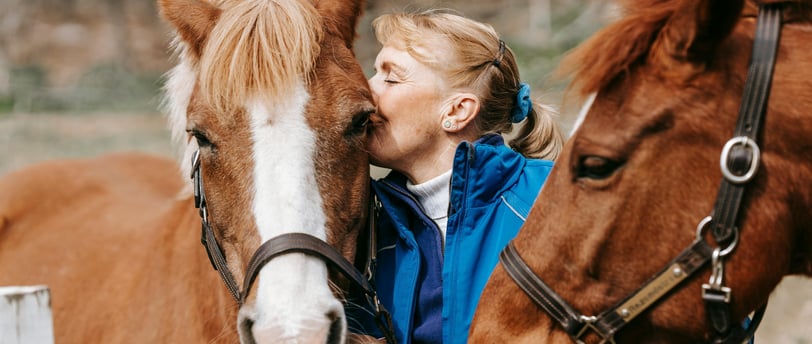Equine Health Care: Ensuring the Well-Being of Horses
Aim for a healthy horse/donkey and rider
Angelita
3/27/20251 min read


Ensure the well-being of horses and donkeys, here are some general care tips based on established practices for their health and happiness:
For Your Beloved Horse
Nutrition: Provide a balanced diet with access to fresh grass or high-quality hay, supplemented with grain or concentrates if needed based on their activity level. Fresh, clean water should always be available.
Shelter: Offer a stable or shelter to protect them from extreme weather—heat, cold, rain, or wind. A three-sided run-in shed can work well in pastures.
Exercise: Horses need regular movement, whether through riding, turnout in a paddock, or pasture time, to maintain physical and mental health.
Hoof Care: Schedule regular farrier visits (every 6-8 weeks) to trim hooves and check for issues like cracks or thrush.
Veterinary Care: Annual checkups, vaccinations (e.g., tetanus, rabies), and deworming tailored to your area are essential. Watch for signs of colic, a common digestive issue.
Social Needs: Horses are herd animals and thrive with companionship, whether another horse or compatible livestock.
For Your Beloved Donkey:
Nutrition: Donkeys are efficient eaters and need a high-fiber, low-sugar diet—think straw, hay, or limited grass. Overfeeding rich foods can lead to obesity or laminitis. Water access is equally critical.
Shelter: Like horses, they need protection from harsh weather. Donkeys are hardy but dislike wet conditions, so a dry resting area is key.
Exercise: They’re active by nature—provide space to roam or engage them with light work or play.
Hoof Care: Regular trimming (every 6-12 weeks) keeps hooves healthy, as overgrown hooves can cause pain or lameness.
Veterinary Care: Routine checkups, vaccinations, and parasite control are vital. Donkeys mask illness well, so monitor subtle behavior changes.
Social Needs: Donkeys are highly social and bond strongly—pairing them with another donkey, horse, or even a goat can prevent loneliness.
General Tips for Both:
Check them daily for injuries, unusual behavior, or signs of distress (e.g., lethargy, not eating).
Maintain clean living spaces to prevent disease—remove manure and wet bedding regularly.
Build trust through calm, consistent handling; both species respond well to routine.
